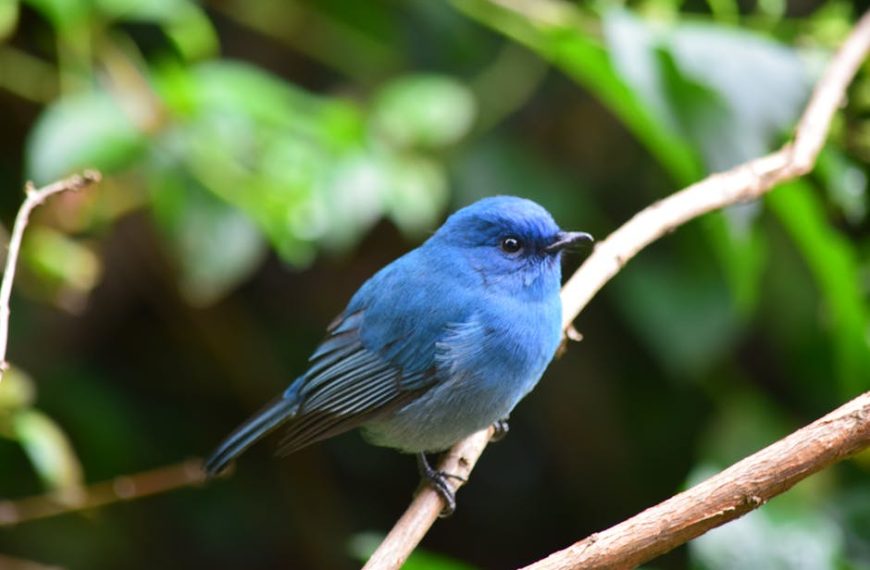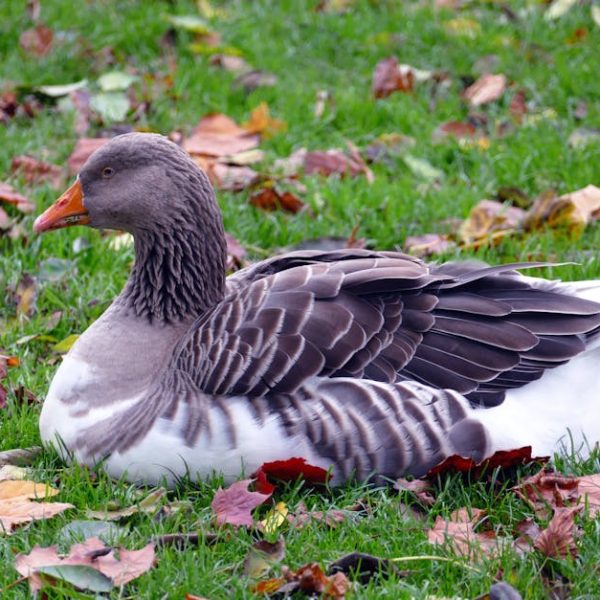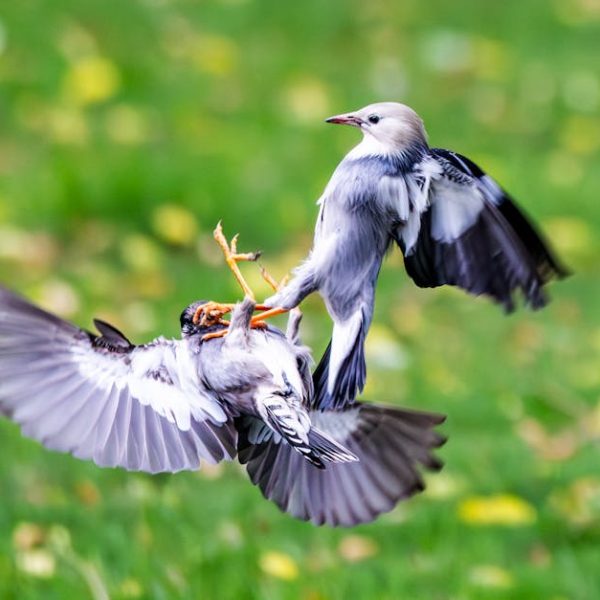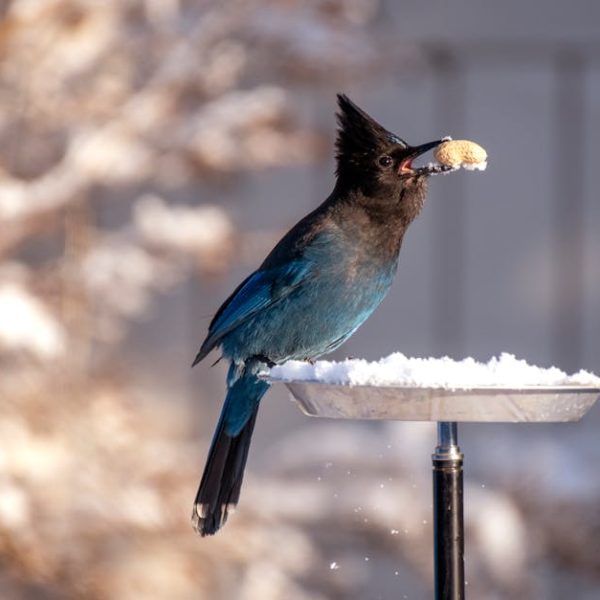When birds begin their melodious chirping early in the morning, it’s more than just beautiful background noise. These morning serenades, known as dawn choruses, serve several critical purposes for our feathered friends, from establishing territory to attracting a mate. While these tuneful communications are a fundamental part of a bird’s daily routine, they’re also filled with intriguing complexities and implications that contribute to the vibrant cycle of Mother Nature.
Understanding Bird’s Circadian Rhythm and Wake-Up Calls
Just like humans, birds function on a biological clock known as a circadian rhythm. This natural, internal process helps regulate their daily tasks, like feeding, migrating and particularly singing. The primary cue for this rhythm in birds is the break of dawn.
- Best practices: To get a firsthand experience of this phenomenon, go outside at sunrise and pay close attention to the noticeable increase in bird song. Journal about which bird species you hear each morning and see if you notice a pattern over several days.
Comparing the wake-up calls of various bird species can further elucidate the intricacies of bird life. For example, robins generally stir and start singing well before sparrows do. This establishes a fascinating rhythm in the avian universe that is more than mere coincidence, but a reflection of each species’ unique ecological niche and behavior.
The Role of Chirping in Territorial Marking
Intricately woven into the dawn chorus is the marking of territory. Through their early morning songs, birds signal to others that they are fit, healthy and ready to defend their patch of the world, thus keeping potential competitors at bay.
- Pro Tips: Listen closely for repetitive and consistent songs. These are usually the ones signaling territorial boundaries.
Some bird species are especially vocal when it comes to territorial songs. Robins, blackbirds and song sparrows, among others, are known for their assertive early morning declarations.
Morning Chirping as a Mating Call
Songbirds often combine the practical task of territorial marking with the romantic goal of attracting a mate. In the dim light of dawn, these serenades serve as a testament of the singer’s health and survival skills, eventually making them more appealing to the opposite sex.
Some birds, such as the nightingale and the American robin, are famous for their love ballads that echo through quiet early morning landscapes.
- Pros and Cons: The advantages of using songs range from attracting a mate to asserting dominance. On the contrary, it could also make the bird conspicuous to predators.
The Impact of Ambient Noise on Bird Chirping
In today’s urban jungles, ambient noise has become a growing issue for birds. To ensure their chirps are heard across these bustling soundscapes, many songbirds had adjusted their timing to the quieter hours of dawn.
- Checklist: Notice if your local birds seem to be singing louder, at unusual hours, or in a higher frequency. These could be signs they’re adapting their songs to the ambient noise.
Urban dwellers such as the house finch and the city pigeon have proven particularly adaptable to the din of modern life, adjusting their songs accordingly to ensure their messages aren’t lost in the noise.
The Importance of Bird Chirping to Human Beings
While bird choruses create a captivating musical start to human days, these dawn choruses also deepen our understanding of avian ecology and behavior. They can even serve as our natural alarm clocks, gently welcoming a new day.
- Best practices: Consider investing in a simple bird book or app to identify different species songs. Record your observations – time of day, weather, and birds spotted – for intriguing insights into bird behavior.
Around the world, diverse bird species serve up a variety of dawn choruses. Australia’s laughing kookaburra, the common cuckoo across Europe, or America’s own northern cardinal – each adds a distinctive note to the early morning symphony. Same ti me, each holds valuable information for ornithology, the scientific study of birds.
So next time you’re awakened by the chirping of the birds, rather than shutting your window, take a moment to appreciate this perfect blend of nature’s soundtrack. Its purpose is multifaceted, its occurrence is influenced by countless variables, and its intricacies remain largely unknown, begging to be studied and cherished. From territories to mating calls, circadian rhythms to ambient noise influences, and human benefits – these morning songs tell a story in a language that’s understood across species. Now, isn’t that truly amazing?
Quick Reference Guide
- Understanding Bird’s Circadian Rhythm and Wake-Up Calls: Birds function on a biological clock known as a circadian rhythm that is triggered by sunrise. This internal mechanism regulates tasks including singing. Pay attention to the increase in bird song at sunrise to understand this phenomenon better. Different bird species have their unique wake up calls, like robins who start singing much before sparrows.
- The Role of Chirping in Territorial Marking: Birds use morning songs to mark their territory. Repetitive and consistent bird songs typically signal territorial boundaries. Species like robins, blackbirds, and song sparrows are conspicuous for their territorial calls.
- Morning Chirping as a Mating Call: Bird songs often serve as mating calls. Species like nightingales and American robins are known for their morning love ballads. These songs, while attracting a mate, also make the bird noticeable to predators.
- The Impact of Ambient Noise on Bird Chirping: Urban noise affects birdsong timing. Birds often adjust their songs – singing louder, at unusual hours, or in a higher frequency to make their presence felt amidst these noises. Birds like house finch and city pigeon have adapted well in an urban landscape.
- The Importance of Bird Chirping to Human Beings: Bird songs contribute to a better understanding of avian ecology, behavior, and can serve as a natural alarm clock. Identifying different species and documenting their behavior can be an engaging hobby. The dawn chorus of different bird species like Australia’s laughing kookaburra, the common cuckoo of Europe, or America’s northern cardinal each add a unique note to the orchestra of nature.
Key Takeaway:
- Birds use chirping to communicate crucial information, such as territorial marking or attracting a mate.
- The timing of bird songs is influenced by their circadian rhythm, which is aligned with sunrise.
- Many birds have adjusted their songs to compete with ambient noise, especially in urban areas.
- Bird chirping has a significant role in human’s understanding of the environment and even serves as a natural alarm clock.
Although the reasons behind birds’ early morning chirping might seem complicated, they all contribute to the vibrant cycle of nature. So, continue to appreciate this natural orchestra each morning. And if you’re inspired by the beautiful symphony, why not indulge yourself in bird watching? It’s a simple and rewarding way to connect deeper with the natural world.
FAQs
Q: How does a bird’s circadian rhythm affect its singing habits?
A: The circadian rhythm in birds is a natural system that regulates their daily activities. It’s primarily influenced by sunrise. As a result, birds are programmed to sing more at dawn, marking the start of their active hours.
Q: Can human’s urban noises really change bird’s chirping pattern?
A: Yes, numerous birds have adapted to urban noise by altering their songs. They may sing louder, at unique hours, or even modify the frequencies of their songs to ensure their calls are heard over the urban din.
Q: Why do birds typically chirp early in the morning instead of at midday or night?
A: In the quiet early morning hours, ambient noise is low, so birds’ songs can travel further without being drowned out. Furthermore, singing at dawn helps birds to assert their territory and attract a mate before the day’s activities begin.
Q: Can everyone practice identifying different bird songs?
A: Absolutely! It only requires patience and a keen sense of hearing. You could also consider investing in a bird book or a bird song identification app to help you understand different species’ songs better.
Q: How can monitoring bird songs contribute to scientific research?
A: Observing and documenting bird songs can provide valuable insights into avian ecology and behavior. This research can help in understanding patterns of bird migration, mating strategies, territorial behaviors, and even impacts of urbanization on birds.
Don’t forget to share this article and explore more fascinating topics on our website!












